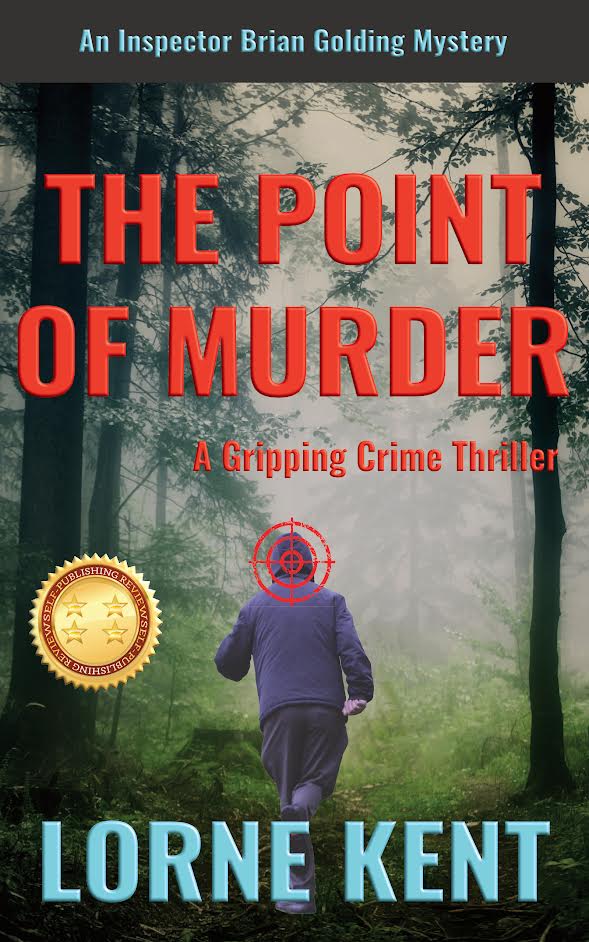
Author Lorne Kent delivers a twisted mystery that puts deadly pressure on a “nice neighborhood policeman” in his intro to a new investigator series, The Point of Murder, an engrossing, well-researched, globe-hopping thriller.
When a thirty-year-old Russian activist attempts to flee the oppressive motherland, his escape sets in motion a murderous drama that plays out on the typically quiet streets of Ottawa. Driven by a stellar cast of three-dimensional characters, including a masterful assassin who kills without remorse, this is a gripping dive into evil.
DI Brian Golding is the rule-bending cop who catches the case when bodies start to fall, and he is quickly pulled into one of the darkest investigations of his career. His own life is marked by tragedy, as the love of his life died suddenly, years earlier, leaving him and his daughter to fend for themselves in grief. His brokenhearted, rough-around-the-edges attitude is a common trope for leading men, and though his backstory is far from unique in the genre, he’s an engaging character at the center of this novel.
Beyond character richness, Kent tangles this sprawling plot to epic proportions, throwing in political dissidents fleeing to safer shores, shadowy corporations fueled by limitless greed, government kickbacks, Cyrillic encryptions, corrupt police forces, and much more. The book is highly contemporary, even referencing recent events and social justice issues, such as the thousands of bodies of indigenous children found buried near resettlement schools across Canada. Threading a fine needle between social commentary, fictional horrors, and stories seemingly torn from the front page, this is a high-stakes and incisive read.
At times, however, Kent doesn’t leave a lot to the reader’s imagination; the author is explicit in his narration, which paints a vivid picture of the events, but it can also slow down the pace, and steal some of the tension from the mystery. Having an omniscient storyteller is powerful for such an elaborate premise, but it can often feel like readers are being spoon-fed emotions. Even in moments when readers are given access to a character’s internal monologue, the writing is still overworked – in other words, too much telling and not enough showing.
When it comes to scene-building, a keen-eyed editor could tighten the writing considerably, and decide what minutiae should be cut, as the prose is sometimes overly detailed. The amount of information about investigatory tactics and cutting-edge tech is no doubt impressive and adds authority to the prose, but the level of detail can get in the way of the story. For instance, some of the exposition about these strategies is done through dialogue, which doesn’t feel entirely realistic between professionals with a clear understanding of the crime-catching methods being employed. Kent clearly wants to give readers a behind-the-scenes look at police work, but this may be at the expense of some realism. That said, as a police procedural, any reader who is fascinated with law enforcement will be able to easily sink their teeth into Kent’s elaborate scene-setting.
All told, aside from a few technical slips and editorial weaknesses, The Point of Murder is undeniably compelling, timely, and decidedly difficult to put down, for a strong intro to a new detective series.
Book Links
STAR RATING
Design
Content
Editing
Get an Editorial Review | Get Amazon Sales & Reviews | Get Edited | Get Beta Readers | Enter the SPR Book Awards | Other Marketing Services























Leave A Comment